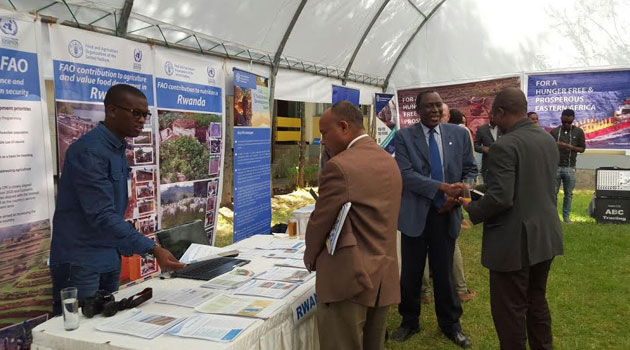
“FAO is also mapping surface water systems through ICT and developed early warning systems on disease outbreaks as part of measures to avert a massive humanitarian crisis,” he said/CFM NEWS
Robert Allport, the UN agency’s official in charge of Kenya, said FAO had put in place good conservation and agricultural practices as part of measures to mitigate against adverse weather conditions and boost agricultural production in different counties in the country.
“FAO is also mapping surface water systems through ICT and developed early warning systems on disease outbreaks as part of measures to avert a massive humanitarian crisis,” he said.
Attaher Maiga, the FAO official in charge of Rwanda said the UN agency had introduced a number of adaptation measures to protect farmers in the Eastern Africa region against the effects of climate change.
Maiga said the adaptation measures include making water available in drought hit areas and also providing short-circle crops and drought resistant ones.
“FAO is also focusing on eradicating malnutrition by introducing basic intervention measures like encouraging farmers to have kitchen gardens for their daily food needs,” he said.
The FAO officials who were was speaking in Addis Ababa, Ethiopia during the occasion to mark the 70th anniversary of FAO said the organisation was also helping in commercializing aquaculture by encouraging farmers to embrace fish production.
“We are also helping farmers to diversify their activities by tapping into forests resources through passion fruit, mushroom and honey production,” Maiga said.
He added that FAO is linking small-holder farmers to markets as part of initiatives to boost food security in the region.
“We are also using solar energy to promote small scale irrigation in drought hit areas,” he noted.
Richard Trenchard, the FAO official in charge of Somalia said the agency had developed mobile phones SMS based systems to give farmers early warning signals in flood prone areas and warn fishermen about impending storms.
He said FAO was working towards moving away from a food production based system and establishing a food focused one.
“Most hungry people will be fed by a well-functioning food system and not a food production based system,” he said.
Trenchard added flooding in Shebelle area in southern Somalia caused by El-Nino rains together with the drought being experienced in the north of the war-torn country had caused a massive humanitarian crisis.
“The complete crop failure in most parts of Somalia has been caused mainly by El-Nino rains and drought,” he said.
Amadou Allahoury, the FAO official in charge of Ethiopia said the country had been hit by a drought that has been worsened by the El-Niño rains.
“We have since developed an El-Nino response plan to help restore crop production in the affected areas,” he said.









































